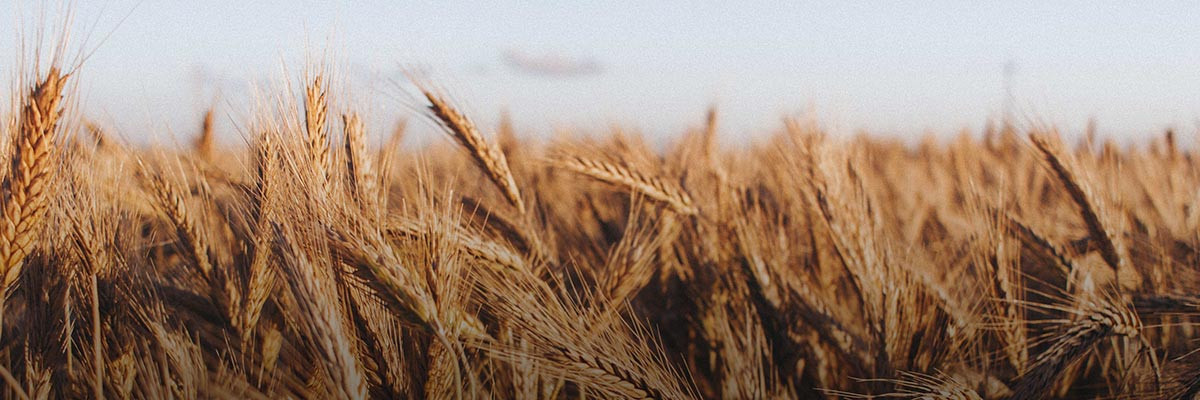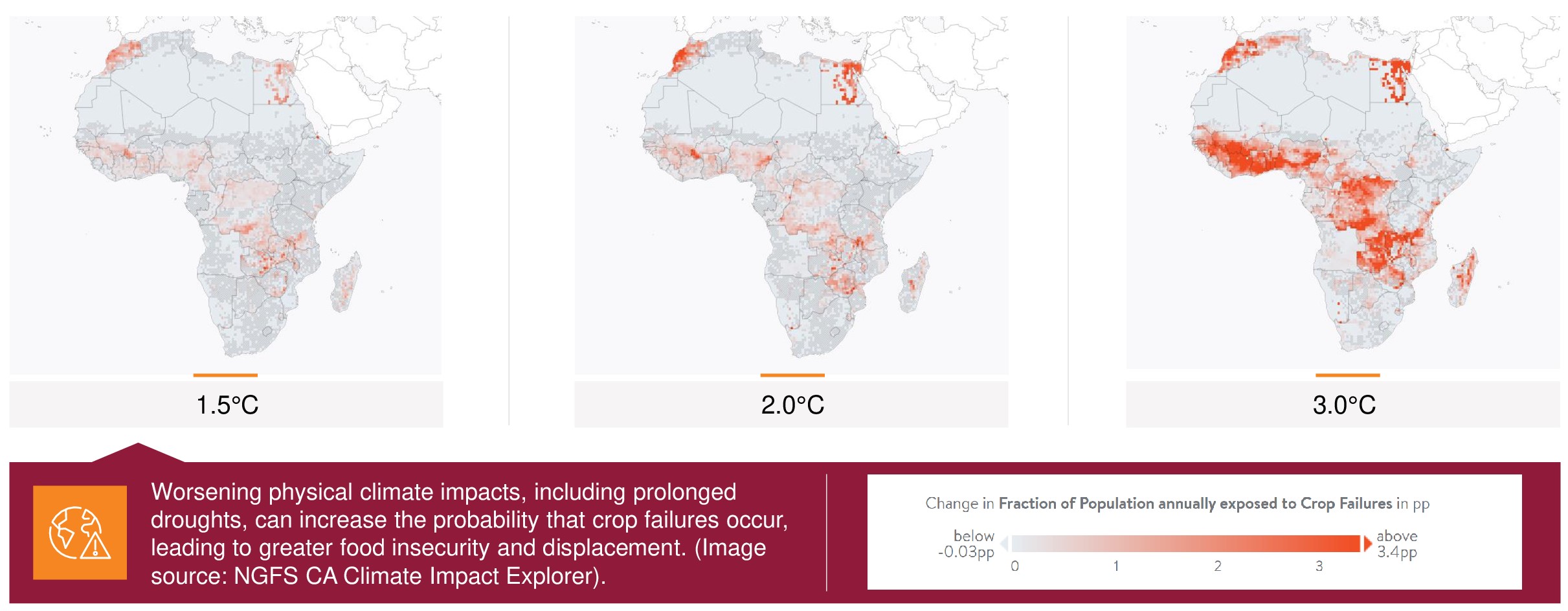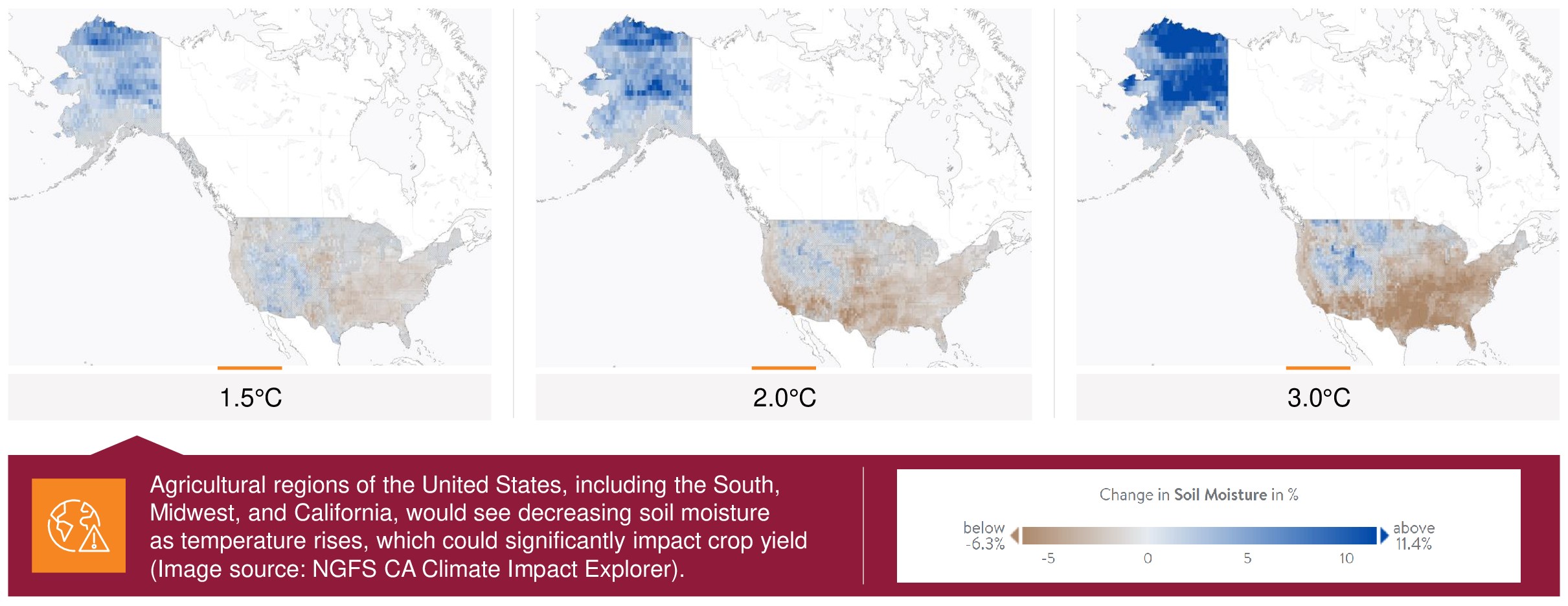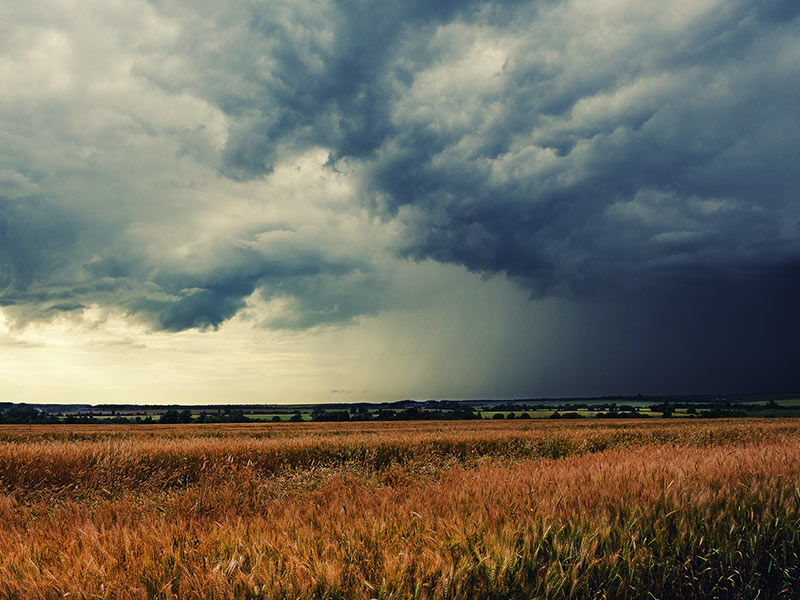
Key Points
- The physical impacts of climate change are expected to intensify up to 2035. Beyond this, the frequency and severity of disruptive weather events will be dictated by the ambition of our response.
- Changing weather patterns and demand for both bioenergy and land-based carbon removal will accelerate competition for land resources.
- Earlier action will prevent hasty and draconian approaches to reduce emissions and avert the worst physical impacts of climate change.
Land use, crop production, and the respective food, beverage, and agricultural markets are inextricably linked to climate and will be shaped by rising global temperatures and our response to changing weather patterns.
Events of the last decade have already provided a taster of what we can expect. Chronic weather changes (e.g., altered precipitation patterns) and acute weather events (e.g., severe droughts, floods, and tropical cyclones) will significantly impact agricultural systems. From shifting production zones and reduced yields and nutritional quality of crops, to negative outcomes on farmer livelihoods and well-being, there are serious implications for the food, beverage, and agriculture sector.
Population Exposed to Crop Failures in Africa

We know that changes to our climate will intensify, bringing environmental, social, and economic turmoil for the global food system. Some of these anticipated impacts will come into effect regardless of future action, as they are linked to greenhouse gases that are already emitted into our atmosphere.
What we don’t know is how society will react in addressing the climate crisis—and thus the severity of its impacts—and how developments in areas such as geopolitics and technology will unfold in the coming decades.
To help companies navigate uncertain futures and consider dynamic macro forces in their climate plans, BSR has developed three future scenarios for the food, beverage and agriculture sector. Below, we share the most salient insights across scenarios, which reinforce the urgency of climate action for business in this sector.
The physical impacts of climate change are relatively certain up to 2035. Beyond this, our action will dictate severity and intensity.
Regardless of action taken to reduce GHG emissions, the physical impacts of climate change are expected to intensify up to 2035. Beyond this, the intensity and frequency of disruptive weather events will be dictated by the speed and ambition of climate action this decade.
Delayed or insufficient action will further increase the frequency and severity of extreme weather events, leading to reduced crop yields and supply chain disruptions that affect access to raw commodities and derived goods.
If we take no further climate action beyond current policies, physical climate impacts in 2050 would lead to global cereal yields that are 15 percent lower than in scenarios where further action is taken. Failing to prepare for such disruptions will likely expose business to greater supply risk and commodity price volatility. The sector will have to build resilience to the expected physical impacts, while working to rapidly achieve net-zero emissions to avoid further catastrophic outcomes.
Soil Moisture in the United States

Physical impacts, growth in bioenergy demand, and a greater reliance on land-based carbon sequestration will add pressure on land resources.
On the other hand, rapid and coordinated global climate action may put land resources under greater pressure. Changing weather patterns and demand for both bioenergy and land-based carbon removal will accelerate competition for land resources.
In a scenario where we take early and coordinated action to reach net-zero emissions by mid-century, forested lands would grow by 160 million hectares by 2030, and 15 percent of primary energy would come from biofuels in the same year.
This would require that land—which may already be disputed or under pressure—is used for reforestation, afforestation, and the production of bioenergy crops. If this scenario was to unfold, businesses may be expected to have greater visibility of their supply chains, source materials from regions that are less environmentally vulnerable or free from land disputes and play a central role in driving innovation in agriculture and food and beverage production.
As we target net-zero emissions by 2050, a delay in climate action will leave companies exposed to greater transition risks.
Delayed action would require hasty and draconian approaches to reduce emissions and avert the worst physical impacts. This response could include high carbon taxes and unanticipated legal mandates requiring business to abruptly decarbonize, posing challenges to the food, beverage, and agriculture sector, which tends to have significant value chain and land use emissions.
This precipitated regulatory response would expose companies to high costs for abating emissions, including those linked to rapid deployment of renewable energy, and reliance on low-carbon agriculture technologies that may not deliver the emissions reductions needed or struggle to scale.
Climate scenarios can help food, beverage, and agriculture companies test the resilience of business strategies against plausible futures.
Building climate resilience in the food, beverage, and agriculture sector will require understanding these complex dynamics, preparing for a wide range of plausible futures, and building a strategy that won’t be derailed by any of these futures. Climate scenarios, which highlight sector-specific implications, can be used by business to assess the resilience of sourcing strategies, uncover the vulnerability of key supply chains, and identify climate-related risks and opportunities.
BSR has 30 years of experience working with food, beverage, and agriculture companies on risk assessment and supply chain sustainability. With the launch of this new set of scenarios, we look forward to exploring the implications of plausible future developments related to climate change.
Want to know more about BSR’s FBA Climate Scenarios?
Contact us for a 1:1 briefing on the scenarios, or a 1-hour interactive taster workshop with other industry peers, to see how you can use these scenarios in practice.
Topics
Let’s talk about how BSR can help you to transform your business and achieve your sustainability goals.








